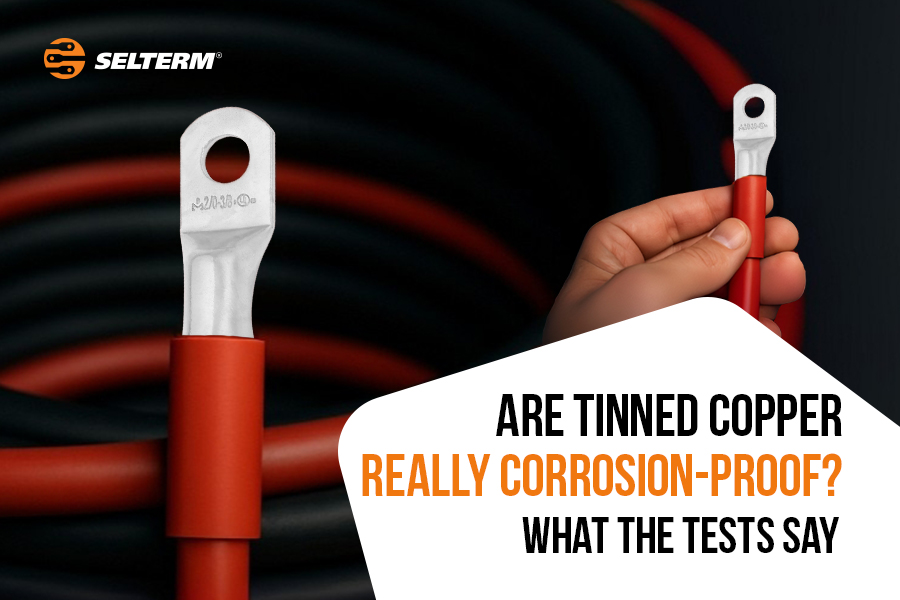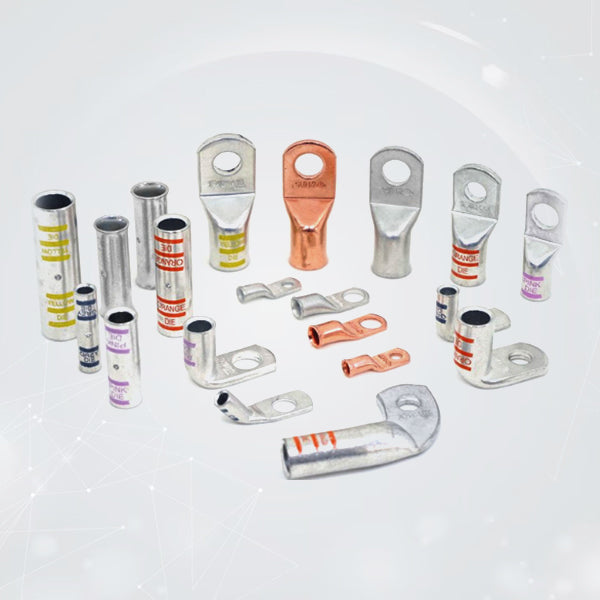
Are Tinned Copper Lugs Really Corrosion-Proof? What The Tests Say
Whether you're installing a solar setup on your RV, replacing wires on your golf cart, or upgrading the battery system on your boat, one little component produces a big impact i.e. Tinned copper lugs.
In particular, tinned copper lugs are the preferred choice for applications in humid, wet, or salty environments. But the real question is, are tinned copper lugs truly corrosion-resistant? Or is it just another name for a regular connector?
Let's analyze the science, the evidence, and what you should know before you trust your next electrical connection to a tinned copper lug.
What Are Tinned Copper Lugs?
Tinned copper lugs, also known as marine grade lugs, are regular copper battery cable lugs that have a thin coat of tin added on top. This tin layer helps protect the copper.
They’re designed to:
- Help prevent rust and damage from moisture or salt in the air or water
- Make the connection last longer
- Keep the same good conductivity as raw copper
The tin coating acts as a barrier that protects the copper from salt, water, and air, elements that can cause corrosion and wear over time.
Why Corrosion Happens And Why It Matters
Copper is naturally good at conducting electricity, but it reacts easily with moisture and air, especially in tough conditions. Over time, this reaction forms oxide layers on the surface, which lower the metal's ability to conduct electricity. If you're using bare copper in places like:
- Marine systems (where there's salt spray and high humidity)
- RVs that are parked in areas with a lot of rain.
- Solar installations exposed to the elements
...that oxidation can lead to voltage drop, power inefficiency, or even complete failure at the terminal point.
Do Tinned Copper Lugs Resist Corrosion?
Let’s be honest, no material is completely corrosion-proof forever. But tinned copper lugs are engineered to resist corrosion significantly better than bare copper.
What Do The Lab Tests Say?
At Selterm, all tinned copper lugs are ASTM B117 salt spray tested, a gold standard in the industry. This test simulates harsh saltwater exposure in a controlled chamber. After hours of accelerated exposure, marine grade lugs show minimal corrosion, while bare copper alternatives quickly oxidize and degrade.
Additionally, Selterm’s cable lug tinned copper products are:
- UL Listed (E254830) for safety and durability
- Rated to 600V, suitable for automotive and renewable energy applications
- RoHS and REACH compliant, meaning they’re free of harmful substances
Translation? They meet strict standards and are built to last.
Real-World Applications
Let’s look at how this translates in practice. Here’s where tinned copper lugs really shine:
1. Marine Systems
Saltwater is one of the most aggressive corrosive environments. A bare copper lug in a boat's electrical system will corrode rapidly. Tinned lugs? They hold up much longer, especially when paired with heat shrink tubing for a sealed, waterproof connection.
2. RVs And Campers
You park in the rain, drive through snow, and keep your RV in temperatures that keep changing. Moisture gets into the copper parts and starts to break down the connections. Using tinned copper lugs gives you more confidence over time, less need for fixing, and better electrical performance.
3. Solar Panel Wiring
Outdoor solar electrical systems are exposed to heat, rain, and direct sunlight. It is important that connections are made with connectors that won't rust or corrode. Tinned lugs keep connections clean from dirt and stable, which is a good thing when you are away from a main power source and don't have access to spare parts.
4. Golf Carts And ATVs
Golf carts live in garages, get hosed off, and see a lot of battery drain. Tinned copper terminals help avoid early wear-and-tear, especially in high-amp, low-voltage systems.
5. Car Audio & Mods
Running high-performance amps or custom electrical mods? You want every ounce of current flowing cleanly. Tinned copper lugs provide better signal reliability over time, even in vehicles exposed to salt, grime, or daily driving wear.
Not All Tinned Lugs Are Equal: What To Look For
If you're shopping for marine grade lugs, make sure you're not cutting corners. Here's what matters:
- UL-Listed: Guarantees safety and performance
- Pure copper base: Avoid aluminum or copper alloys
- Proper wire gauge match: Don't undersize or oversize
- Clean electroplating: No flaking or inconsistent tin layer
- Chamfered edges and closed barrels: For better crimping and strain relief
At Selterm, we’ve designed our marine grade lugs to meet those exact specs. You’ll find lug sizes from 8 AWG to 250 MCM, a variety of stud hole sizes, and convenient bundle packs for DIYers and hobbyists.
How To Maximize Corrosion Resistance
Tinned lugs are the first step, but installation matters too:
- Crimp properly: Use a proper hex or indent crimper
- Add heat shrink: Especially dual-wall with adhesive for waterproofing
- Clean wire ends before insertion: Dirty copper invites corrosion
- Avoid over-tightening: Stress cracks can expose copper underneath
Final Verdict: Are Tinned Copper Lugs Worth It?
Corrosion is inevitable, especially if your project lives outdoors, near water, or on the move. But with the right gear, you don’t have to fight it every season. Tinned copper lug isn’t just a corrosion “solution”, it’s prevention.
Whether you’re working on a golf cart, boat, RV, solar system, or even a weekend car mod, the last thing you want is a bad connection messing things up. Invest once in quality, and you’ll spend less time replacing, re-crimping, or troubleshooting down the line.





